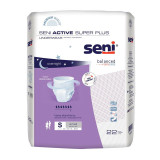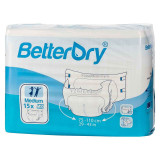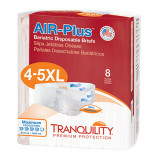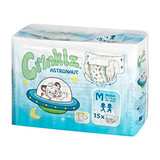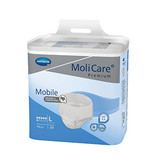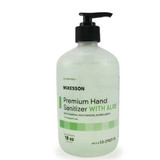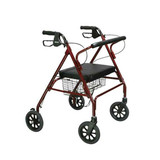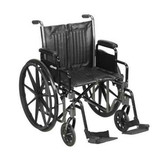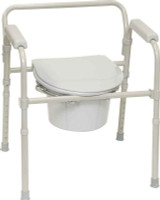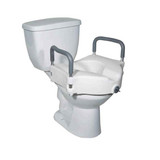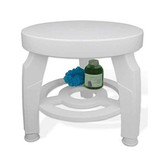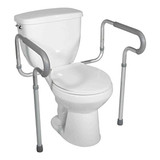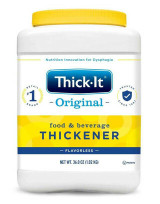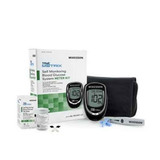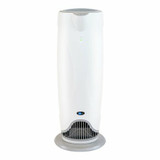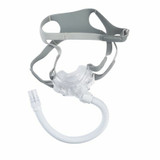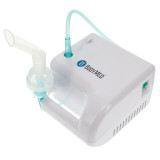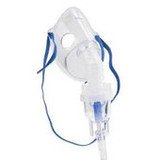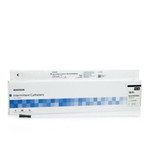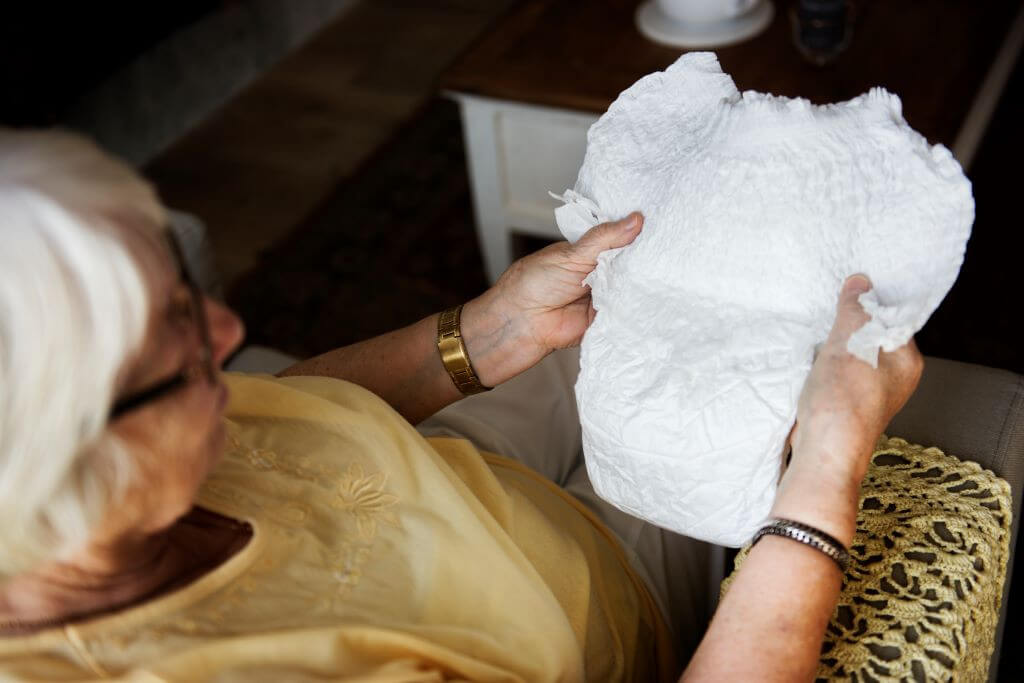
The Caregiver Guide - Managing Alzheimer’s and Dementia
Being a caregiver is no easy task, but it’s a noble and laudable sacrifice. The Alzheimer’s Association reports that 11 million people care for people with Alzheimer’s or other types of dementia. Another sobering statistic; caregivers in the US spend, on average, around 24 hours per week caring for someone that they don’t live with. For those who live in, this number climbs to over 37 hours. That’s very nearly the equivalent of a full-time job. And this is unpaid care. To put it in perspective, it added up to just under half a billion dollars’ worth of time in 2020, according to these statistics provided by A Place for Mum.
Dementia is incurable, and it’s relentless. As with any medical condition, an early diagnosis can significantly improve the prognosis. Creating a safe and comfortable environment is the first step in limiting the harmful effects of the disease. Cognitive decline often causes a lot of frustration for the patient, and effective communication is crucial for both the patient and caregiver. As the disease progresses, it becomes more and more difficult for the caregiver to cope. In most cases, consideration for end-of-life care eventually becomes an unfortunate reality, but support for the caregiver’s health becomes just as important.
In this caregiver guide, we’ll explore the various aspects of caring for a dementia patient, including practical tips and strategies for managing the challenges of Alzheimer’s or other dementias. Whether you’re a first-time caregiver or have been caring for your loved one for some time, this guide will provide valuable insights and resources to help you navigate this journey with compassion and confidence.
Understanding Dementia: Symptoms, Causes, And Types
Dementia is a catch-all term for a group of symptoms that affect the brain's ability to function normally. The most common cause of dementia is Alzheimer’s disease, which can start with mild memory loss and confusion but slowly progresses into more severe symptoms, including difficulty solving problems, finding words, and performing daily tasks. Other types of dementia include vascular dementia, Lewy body dementia and frontotemporal dementia.
Although dementia has existed for centuries, it is much more common nowadays because the average life expectancy has increased sharply. Dementia affects a significant number of individuals in the United States. To understand just how big the problem is, here are some interesting statistics related to dementia in the US:
· According to the Alzheimer’s Association, more than 6 million Americans are living with Alzheimer’s dementia in 2023.
· Alzheimer’s disease is the sixth leading cause of death in the United States, with one in three seniors dying with Alzheimer’s or another form of dementia.
· Women are twice as likely to develop Alzheimer’s disease than men. Two-thirds of Americans with Alzheimer’s are women.
· By 2050, the number of Americans living with Alzheimer's dementia is projected to reach 12.7 million unless a cure or prevention strategy is found.
· Caregivers of individuals with Alzheimer’s or other dementias provide an estimated 18 billion hours of unpaid care, valued at more than $340 billion.
Diagnosis And Assessment
Assessing the cognitive decline of a patient with dementia requires careful consideration and thorough evaluation. An accurate diagnosis is essential for developing an effective care plan that addresses the individual's unique needs. While there are no definitive tests to diagnose dementia, doctors must recognize the pattern of the loss of skills and function over time, along with other factors such as medical history and cognitive testing.
Early diagnosis of dementia helps individuals to access appropriate care and support services in a timely manner. Studies suggest, however, that only 45% of people with Alzheimer's disease or their caregivers have been told of their diagnosis. The average time from the onset of symptoms to making an accurate diagnosis of Alzheimer's is 2-3 years, further highlighting the need to improve awareness and seek timely evaluation.
A comprehensive assessment for dementia includes evaluating cognitive function, physical health, mental health, and social support systems. Biomarkers, such as amyloid and tau proteins, can aid in diagnosing Alzheimer's disease and other dementias, but they are not yet widely used in clinical practice. Once diagnosed, regular follow-up assessments are necessary to monitor disease progression, adjust care plans, and provide support to both the individual with dementia and their caregivers.
The most validated tool used to evaluate a patient’s cognitive condition is the Functional Assessment Staging Test (FAST), which assesses the degree or "stage" of dementia. The biomarkers can also help to make a more accurate diagnosis of Alzheimer's disease, but they are considered very expensive and invasive. By using any of these tools, doctors are able to provide better care planning for individuals with dementia by identifying their needs and managing the progression of the disease.
Developing a Care Plan
A comprehensive care plan involves four core components:
· defining and acting on signs of cognitive problems
· managing neurological and mental health problems
· dealing with behavioral and functional issues
· and considering the health and care of the caregiver.
Caregivers should work closely with healthcare professionals to create an ongoing care plan that is reviewed at least once a year or when indicated by significant changes in the patient’s condition.
To help ease the demands of caregiving for Alzheimer's or dementia patients, caregivers should develop daily routines and activities that suit their patient’s abilities while challenging them mentally or physically. Besides this, medication or counseling might be required in some cases, for example, for people with behavioral disturbances such as aggression or agitation.
It’s also important to respond in a calm and compassionate manner when dealing with any behavioral problems exhibited by patients under your care since they may become scared or confused if you react negatively. It’s recommended that caregivers undergo appropriate training to provide them with helpful information on how best to deal with dementia patients while, at the same time, also taking proper care of themselves.
Communication
Individuals with Alzheimer's or any other type of dementia may experience difficulties remembering words or communicating effectively, which can disrupt their relationships and daily life routines. Effective communication strategies are necessary to ensure that people with dementia feel heard and understood. Some techniques that can help to foster effective communication with people living with dementia include:
· Using simple and concise language: Speak slowly and clearly, using short sentences and simple words. Avoid complex or abstract concepts.
· Maintaining eye contact and using non-verbal cues: Non-verbal communication, such as facial expressions and body language, can help convey meaning and emotions. Maintain eye contact to establish a connection.
· Be patient and give them time to respond: Allow the person with dementia enough time to process information and respond. Avoid rushing or interrupting them.
· Use visual aids and gestures: Visual aids, such as pictures or objects, can assist in conveying messages. Gestures and pointing can also help in guiding their attention.
· Show empathy and reassurance: Use a warm and compassionate tone of voice. Provide reassurance and comfort throughout the conversation.
One-on-one conversations held in quiet spaces with minimal distractions are the best way to engage individuals with dementia. Speaking slowly and clearly while maintaining eye contact can help them comprehend conversations better. It's also essential to give the person enough time to respond and provide reassurance throughout the exchange.
Showing a warm, loving, matter-of-fact manner will improve their mood while letting them make decisions increases their self-esteem by making them feel useful and in control. Short, simple sentences using clear one-step communication minimize confusion as they are easier to understand.
Daily routines help maintain consistency by providing schedules that reduce uncertainty and stress in caregiving environment, and provide a sense of structure both caregivers and patients alike.
Creating A Safe and Comfortable Environment
People with dementia are at an increased risk of falling. Make the environment safer by eliminating tripping hazards and ensuring it is well lit. Remove clutter and keep walkways free of loose carpets or other items that could obstruct them. Consider adding grab bars or handrails throughout the home, especially in wet areas like the kitchen and bathroom. For a more detailed guide on making the home safe, read this article.
In addition to improving safety, caregivers should also focus on creating a soothing environment through calming music and lighting. Patients with dementia often have difficulty navigating their surroundings, so try using sharply contrasting colors to improve visual perception, particularly in high-risk areas like stairways. Try to reduce noise and distractions. Loud and unexpected noises may cause confusion or agitation.
Daily Living Activities: Managing Hygiene, Nutrition, And Medications
People with dementia are very prone to neglecting hygiene and grooming, and this is a key area where a caregiver needs to support their patient. The loss of cognitive function may affect only the patient’s memory, or it may cause more serious psychological changes where the person simply refuses to bathe or brush their teeth. It may also, eventually, cause mobility issues, which bring about severe physical challenges.
Creating simple routines, such as washing hands before meals, brushing teeth before bed or going to the toilet at specific intervals can make these tasks easier to manage. Praising or complimenting the patient after they complete a task may create a sense of achievement and motivate them to do more by themselves. At all times, exercise a lot of patience. The inability to complete simple, everyday tasks can be very frustrating for someone with dementia. And sometimes they just can’t understand what is happening to them, which only adds fuel to the fire of confusion and frustration.
Another commonly neglected area is nutrition. A balanced diet consisting of a variety of foods is best, but foods that are high in saturated fat and cholesterol should be limited. Plan meals ahead to make shopping easier and to save time in preparation. If you see any signs of malnutrition despite providing healthy meals, you may need to consider supplements or meal replacements.
As people get older, they’re likely to begin using multiple medications, and managing them is important to reduce the risk of incorrect dosages or unexpected side effects. A person with Alzheimer's or any other dementia is unlikely to be able to manage their medications without help. Medication should be locked up, and labeled prescription bottles should always be checked for accuracy. Installing locks on cabinets containing potentially dangerous items, such as cleaning supplies or knives, can also reduce the risk of harm.
Let’s look at a few tips for managing daily living activities for your dementia patient.
· Establish routines: Create a consistent daily routine that includes regular times for meals, personal care, and medication administration.
· Simplify tasks: Break down tasks into smaller, manageable steps to make them easier for the person with dementia to follow.
· Provide visual cues: Use visual aids, such as pictures or written instructions, to help the person understand and remember tasks.
· Offer choices: Give the person options whenever possible to promote a sense of independence and control.
· Be patient and supportive: Allow the person with dementia to complete tasks at their own pace, offering assistance and encouragement as needed.
· Encourage physical activity during the day and limit afternoon napping to improve sleep quality at night. Also, encourage your patient to avoid or reduce caffeine, alcohol, and nicotine intake, especially close to bedtime.
Managing Behavioral Changes: Aggression, Wandering, And Sundowning
Behavioral and personality changes are common in people with Alzheimer's, including aggression, wandering and sundowning. Aggressive behavior can erupt suddenly for no apparent reason or it can build up gradually due to a frustrating situation. People with dementia may also become restless or upset in certain places or situations, leading to wandering behavior that poses significant challenges, such as injuries or getting lost from a facility.
Sundowning occurs when someone with dementia becomes confused and anxious later in the day. This behavior can accelerate cognitive decline and lead to institutionalization if not managed appropriately. There are ways to assist in managing sundowning or other behavioral changes in people with dementia:
· Identify triggers: Pay attention to the situations or events that may trigger aggressive or restless behavior and try to avoid or minimize them.
· Provide a calm environment: Create a peaceful and soothing environment by reducing noise, clutter, and other potential stressors.
· Engage in meaningful activities: Encourage the person with dementia to participate in activities they enjoy and find meaningful, as this can help reduce agitation and restlessness.
· Maintain a consistent routine: Establish a daily routine that provides structure and predictability, which can help reduce anxiety and confusion.
· Seek professional help: If behavioral changes become challenging to manage, consult a healthcare professional specializing in dementia care for additional guidance and support.
· Encourage daily physical activity to help alleviate problematic behavior associated with dementia. Remember that these behavioral changes occur as part of the brain damage caused by Alzheimer's disease - they're not deliberate actions by the patient.
Supporting Cognitive Function: Memory and Brain Exercise
Brain training and memory exercises may help to slow down the degradation of cognitive function due to dementia. There has been a lot of research on the benefits of brain training, and there are many differing opinions that make this a somewhat contentious subject. What is a fact, though, is that brain training games can be a lot of fun, and they provide a pleasant distraction that helps to relieve the pressure a caregiver often experiences. Best of all, there are hundreds of brain-training games available totally free of charge that cater to different cognitive skills. It won’t be too difficult to find ones that suit your patient's interests and abilities.
Apart from focusing on brain exercise, experts also recommend training caregivers in empathic person-centered techniques to help better preserve remaining cognitive and physical abilities in persons with dementia. Dementia doesn’t follow a pattern. Every dementia patient is different. And, every caregiver is different, as well. There is, however, a lot of advice and support available on the internet. You can find helpful references and links to support groups and caregiver resources on this careforth.com blog or the Senior Lifestyle website.
In the meantime, though, here are five activities that you can use to support cognitive function in a loved one with dementia:
· Memory games: Simple memory games, such as matching cards, can help someone to maintain focus and may also help to keep the mind agile. Reminiscing about past events brings back pleasant memories and allows people to feel that they are still connected.
· Music therapy: Playing familiar music helps to stimulate the memory and evokes positive emotions and calmness.
· Art and crafts: Creative activities such as painting or drawing promote self-expression and a feeling of accomplishment and worth.
· Reading: Reading is widely considered to be very therapeutic, and combining it with book reviews and discussion will help with mental stimulation and focus.
· Puzzles and brain games: Puzzles, crosswords and other brain games challenge cognitive abilities and hone problem-solving skills, which help to maintain mental agility.
Enhancing Quality of Life: Socialization and Leisure Activities
Research has shown that staying socially engaged with friends and family can boost self-esteem and lead to better eating habits, more exercise and better sleep. Regular socialization can also help to reduce the symptoms of depression and anxiety associated with dementia.
For instance, providing an opportunity for enjoyable activities such as music, dancing, or arts can promote pleasure and self-esteem while at the same time reducing agitation. In addition, encouraging physical activities such as household chores or gardening can maintain individuals' functionality levels, allowing them to participate actively in their surroundings.
As a caregiver, try to create opportunities for social interaction, like shopping trips, nature walks or visits to other public places that may interest your patient. Also, ensure they have regular engagements with peers who understand similar experiences through participation in support groups tailored to their needs. These groups offer emotional support essential to maintaining good mental health.
Here are some ideas on ways to enhance the quality of life for individuals with dementia:
· Encourage socialization: Facilitate regular interactions with family, friends, and peers to promote a sense of belonging and reduce feelings of isolation.
· Engage in meaningful activities: Provide opportunities for enjoyable activities that align with the person's interests and abilities, such as listening to music, gardening, or engaging in arts and crafts.
· Reminisce and share memories: Encourage the person to share their life stories and memories, as this can foster a sense of identity and connection to their past.
· Explore nature and the outdoors: Take the person for walks in nature or visit parks and gardens to provide sensory stimulation and a change of environment.
· Utilize technology: Use technology to facilitate social connections, such as video calls with family members or virtual tours of museums and landmarks.
End-of-Life Care: Hospice and Palliative Care
As much as we try to avoid the subject, there will, inevitably, come a time when we have to think about end-of-life care options, such as hospice or palliative care. Palliative care is appropriate at any point after dementia diagnosis and may be provided as early as stage 2. This approach aims to improve the patient's quality of life by relieving physical discomfort and addressing their mental, emotional, spiritual and practical needs.
Hospice care is a special way of caring for people who are terminally ill and providing support to their families. Patients with dementia or Alzheimer's become eligible for hospice care when they start showing certain characteristics. A dedicated team of professionals works together to provide personalized physical, emotional, and spiritual support during this difficult time.
Making end-of-life decisions is affected by individual patient values, cultures, and preferences; thus, Shared Decision Making (SDM) is critical for palliative care patients in managing end-of-life care. Through SDM processes or frameworks like Option Grids or Three-Step-Approach, clinicians can help patients understand what treatment options or decisions make sense given their current condition, prior values that they have communicated earlier in life and any other information relevant to the clinical situation.
Self-Care For Caregivers: Managing Stress, Grief, And Burnout
As we have already mentioned, caregiving is physically and mentally demanding. Many caregivers report that their health has deteriorated and that they have difficulty coping with the demands of the role. To maintain a level of care, a caregiver must also look after their own health.
Stress-reduction techniques such as meditation or visualization can help caregivers cope with the emotional toll of caring for someone with dementia. Admitting that they need help and accepting help from others is also crucial in managing the emotional and physical burden. Involve family members and friends, or hire a professional caregiver to assist with your caregiving duties.
Building resilience against stress will help to improve your overall well-being as a caregiver. Joining caregiver support groups and utilizing respite care services are great resources that can offer relief from caregiving duties while simultaneously providing support from others who share similar experiences.
Conclusion
Caring for a loved one is a challenging and emotional experience. When that loved one suffers from dementia, that challenge is so much more demanding. However, with the relevant knowledge and strategies, caregivers can help improve their loved one's quality of life and manage their own stress and emotions. We hope that this guide has provided some insight into helping dementia patients live the best life they can.
Caregiving is a sacrifice and a very selfless one at that. Just remember that you do not have to do this alone. There are plenty of resources and support groups on the internet that you can call on for knowledge or moral support when you feel down. Remember also that at LL Medico, we strive to provide the highest quality products at the lowest possible prices. For any nutritional products, mobility aids or adult diapers, we stand ready to share our 25 years of experience with you.










